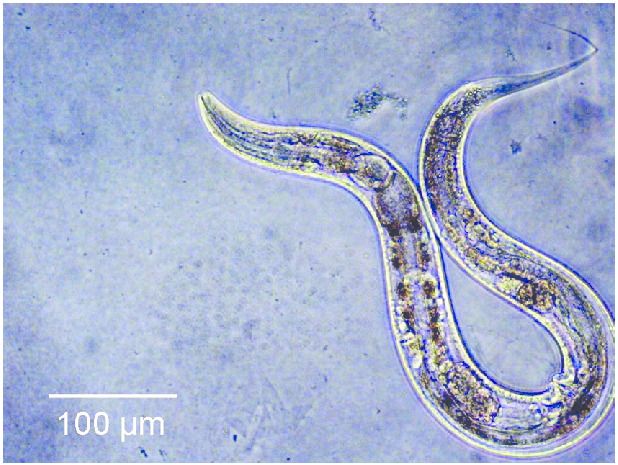Caenorhabditis elegans is a nematode worm which is commonly utilised in longevity research due to their genetic similarity to humans and their extremely short lifespans (often no more than 4 weeks). Previous research into improving the lifespan of these worms has yielded several interesting results, with modifications to their insulin and rapamycin signalling pathways resulting in a 100% and 30% increase in lifespan respectively. These successes prompted the obvious question, what would happen if both of these pathways were modified at the same time?
Photograph of the Caenorhabditis elegans adult hermaphrodite. Scale bar, 100 μm. Credit: ResearchGate, Nobuyuki Hamada.
